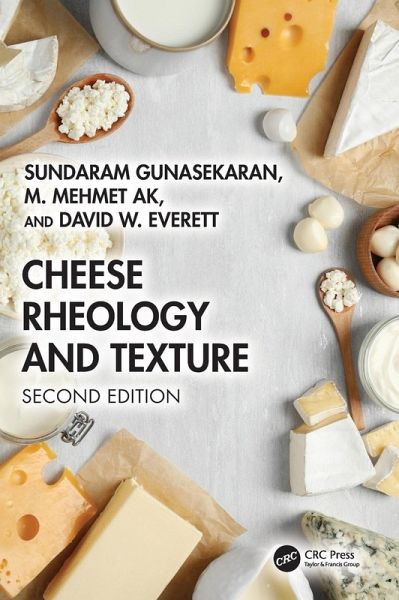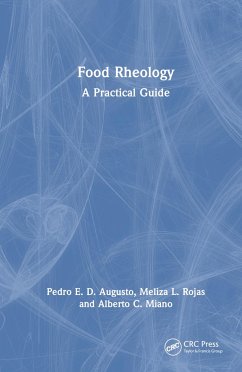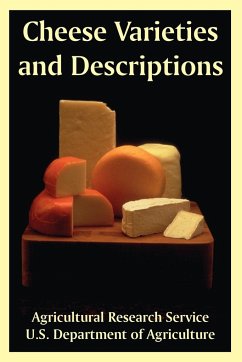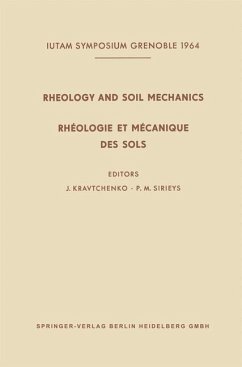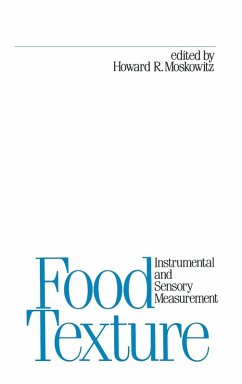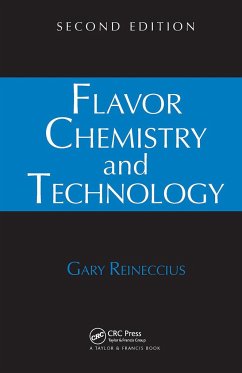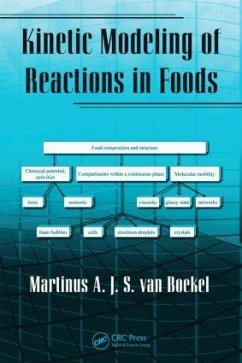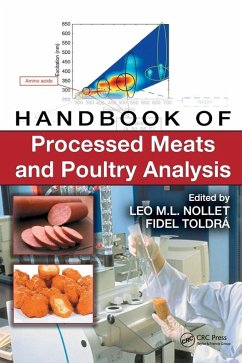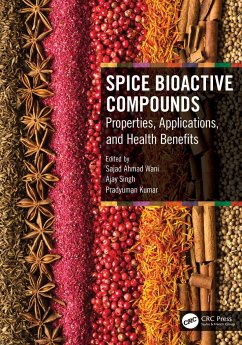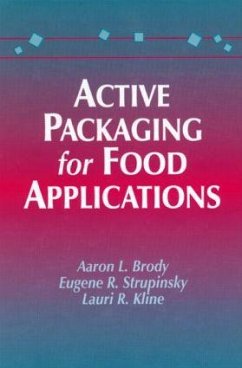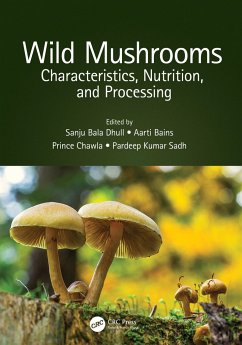Cheese Rheology and Texture
Versandkostenfrei!
Versandfertig in 1-2 Wochen
Weitere Ausgaben:

PAYBACK Punkte
133 °P sammeln!




The second edition of Cheese Rheology and Texture continues to bring together the essential information on the rheological and textural properties of cheese and state-of-the-art measurement techniques now including the most up-to-date findings.
Dr. Sundaram Gunasekaran is a professor in the Department of Biological Systems Engineering at the University of Wisconsin-Madison. He also has affiliate appointments in the departments of Food Science and Materials Science and Engineering. He earned his Ph.D. from the University of Illinois at Urbana-Champaign in 1985. His M.S. and B.S. degrees were from the Asian Institute of Technology in Bangkok, Thailand, and Tamil Nadu Agricultural University in Coimbatore, India, respectively. Dr. Gunasekaran has co-authored over 300 peer-reviewed papers, 15 patents, and three books. His prolific research record has earned him a place on the list of the World's Top 2% of Scientists. His research contributions have been recognized with many national and international awards and honors. The notable ones include the International Dairy Foods Research Award, multiple Fulbright Fellowship/Specialist awards, SC Johnson Distinguished Research Fellowship, and the International Association of Engineering and Food's Lifetime Achievement Award. He is an elected Fellow of the American Society of Agricultural and Biological Engineering and the American Institute for Medical and Biological Engineering. From 2021 to 2022, he served as a Jefferson Science Fellow at the US State Department under the auspices of the National Academies of Sciences, Engineering, and Medicine. Dr. M. Mehmet Ak graduated in 1987 as the top student of the Department of Food Engineering, Middle East Technical University, Turkiye. He received an M.Sc. degree (1989) from the University of Massachusetts Amherst, studying the texturization of fruit pulps with Professor Micha Peleg, and a Ph.D. degree (1993) from the University of Wisconsin-Madison, studying cheese rheology with Professor Sundaram Gunasekaran. Between 1993 and 2000, he worked as a professor of food engineering at ¿stanbul Technical University. He is one of the recipients of the Incentive Award (2000) given to outstanding young scientists by the Scientific and Technological Research Council of Turkiye (TUB¿TAK). Dr. Ak currently works for a family-owned flavor manufacturing company, Aromsa A¿, in Turkiye. He has been with Aromsa since 2000, working in different R&D positions involving food process engineering. Over the years, he has managed three industrial research projects supported by TUB¿TAK and established the corresponding three production lines for encapsulation of flavors via extrusion, core-shell bead formation, and spray granulation. Dr. Ak is the coauthor of several journal articles and book chapters. Dr. David W. Everett is an active researcher in dairy food chemistry, and structural nutrition and digestion, using rheology as one tool to investigate food structure. His current position is Principal Investigator at the Riddet Institute Centre of Research Excellence in Palmerston North, New Zealand. His degrees are from the University of Sydney in chemistry (B.Sc. 1984) and colloid and surface chemistry (M.Sc. 1989), and his Ph.D. is from the University of Wisconsin-Madison in food science (1995). Dr. Everett has taught and researched in dairy food chemistry in his native Australia, the United States, Canada, New Zealand, and Ireland. He has served in leadership and governance positions in the New Zealand Institute of Food Science and Technology (NZIFST), the American Dairy Science Association (ADSA), and the International Dairy Federation, and is a Fellow of NZIFST, ADSA, and Food Standards Australia New Zealand.
Produktdetails
- Verlag: CRC Press
- 2. Auflage
- Seitenzahl: 504
- Erscheinungstermin: 4. Februar 2025
- Englisch
- Abmessung: 260mm x 183mm x 31mm
- Gewicht: 1133g
- ISBN-13: 9781032287256
- ISBN-10: 103228725X
- Artikelnr.: 71264044
Herstellerkennzeichnung
Libri GmbH
Europaallee 1
36244 Bad Hersfeld
gpsr@libri.de
Für dieses Produkt wurde noch keine Bewertung abgegeben. Wir würden uns sehr freuen, wenn du die erste Bewertung schreibst!
Eine Bewertung schreiben
Eine Bewertung schreiben
Andere Kunden interessierten sich für




